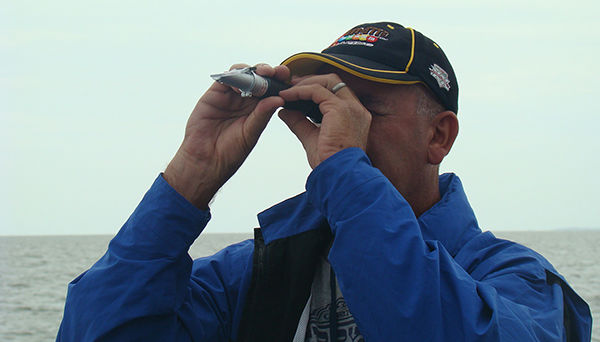
Discovery Hall Programs at the Dauphin Island Sea Lab offers educators a chance to expand their lesson plans during the summer months.
Three educator workshops are offered during June and July covering Technology in Marine Science (June 11-15); Fins, Fishes, and Fisheries (June 18-22); and Climate Change in the Gulf of Mexico (July 16-19). Each workshop carries up to 3 graduate credit hours available through University of West Alabama.
Bayside Academy marine science teacher Megan McCall said she's looking forward to the Technology in Marine Science Workshop. The workshop focuses on how to build and operate underwater remotely operated vehicles, also known as ROVs. The workshop provides educators with the ability to bring engineering to their classrooms as well as all the tools they need to prepare a team for the Northern Regional ROV Competition hosted by the Dauphin Island Sea Lab. The top team from the competition earns a chance to compete in the International MATE Competition.
Two of McCall's students brought the competition to her attention midway through the school year. McCall said the Discovery Hall Programs ROV Competition Coordinator Rachel McDonald was a great help in answering all of their questions and helping them to prepare, but the workshop will offer she and her colleagues a chance to delve deeper into what they need to know to share with the students.
"The training will allow us to be better leaders for the students and to have a stronger understanding of the competition as a whole," McCall said. "The competition offers some great engineering and real world business components. I like to show students what are some things that you haven't thought of as a profession. It's great exposure to give them an outlet and understanding of robotics and our marine world."
Participants in the Technology in Marine Science workshop will be sent home with all the materials needed to assemble a team of students for the competition.
Following the Technology in Marine Science workshop will be the Fins, Fishes and Fisheries workshop. Educators will get a hands-on lesson in fisheries management and the sustainability of the seafood industry. The week's activities include learning some of the different ways fisheries scientists collect fish for study, a visit to area aquaculture facilities, a trip aboard the R/V Alabama Discovery, and presentations from Dauphin Island Sea Lab researchers in the Fisheries Ecology Lab. Attendees may also take home speciments for their classrooms if desired.
In July, educators can participate in the Climate Change in the Gulf of Mexico workshop. The study of climate change is now part of most states' science frameworks, including Alabama’s new standards. The scientific understanding of climate change and its potential impacts is growing quickly. This workshop will include presentations by DISL scientists on a number of aspects of climate change, allow participants to explore related hands-on activities suitable for students, and explore data-rich online resources that can be used in the classroom.
All three workshops offer opportunities for educators to develop lesson plans as well as sharing and discussing ideas with other educators.
To learn more about each workshop and to register, click here.
See below to learn more about the Northern Regional ROV Competition with a look at the 2017 event.